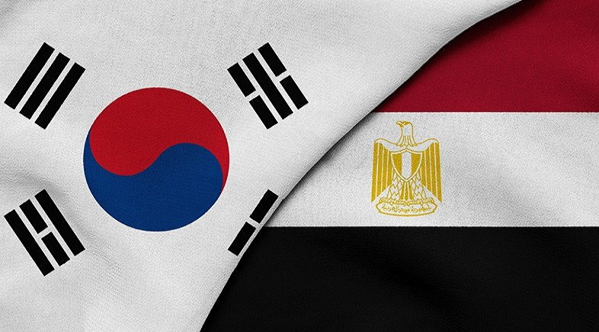
In devotion of Robert Springborg’s description of Egypt as “beggar state”, with respect to reliance on foreign support, South Korea announces it will lend Egypt $1bn, as soft loan
South Korea has announced that it will provide Egypt with a $1bn soft loan ahead of its leader’s visit to Cairo. Meanwhile, Egypt plans to borrow two billion dollars through sovereign financing instruments for the first time, in addition to raising more than $750 million through green bonds in June.
South Korea will grant Egypt $1 billion, the Asian country’s envoy to the North African Arab country has announced, ahead of Moon Jae-in’s visit this week, without providing further details.
South Korean President Moon Jae-in will visit Egypt, the first African country he visits during his presidency, on January 19-20, as announced South Korean Ambassador to Egypt Hong Jin-wook in a press conference on Sunday.
A key economic expert early this month said Egypt’s Sisi is a beggar state, where it depends more on foreign support and loans.
“Egypt under Abdel Fattah al-Sisi has become a beggar state, its economy ever more reliant upon foreign support, especially loans,” Robert Springborg, one of the world’s leading experts on Egypt, has recently stated in a report published by the Project On Middle East Democracy (POMED).
Al-Sisi conducts economic policy as if the country were an oil-rich rentier state like Saudi Arabia or a successful mercantile one like China, though Egypt is neither, Springborg says.
“The regime’s financial appetites are gargantuan, but it is luxuries, not basic necessities for a growing population, that absorb the bulk of state revenues. Al-Sisi, who came to power through a coup, relies on the “wow” factor of mega-projects and weapons purchases to bolster his legitimacy,” he adds.
In the same context, Head of the Debt Management Unit at the Ministry of Finance Mohamed Hegazy announced that the government aims to finalize the executive regulations by the end of January in preparation for issuing the first sovereign financing instruments within five months.
Hegazy pointed out that the Egyptian government tends to borrow through green bonds, explaining that their value will exceed their first-ever issuance last September, which amounted to $750 million.
According to Enterprise, a local economic bulletin, the proceeds and trading of sovereign financing instruments are subject to the same tax rules as treasury bonds. It said that bonds that comply with Islamic law would be issued on local and international stock exchanges.
The Egyptian parliament approved the Sovereign Instruments Law last year to allow the government to start work on the first issue of such instruments. In previous statements, Finance Minister Mohamed Maait confirmed that the first offering can be expected in the first half of this year.
On Wednesday, Maait said that the government aims to extend the life of the debt to close to five years in the medium term, instead of 3.4 years, by issuing medium and long-term government bonds and targeting new instruments such as sovereign instruments, sustainable development bonds and green bonds. The ministry plans to sell new variable-return bonds and focus on selling long-term bonds to increase average maturity.
According to the Central Bank, Egypt’s external debt increased by $14.3 billion during the last fiscal year, reaching $137.85 billion at the end of June 2021, compared with $123.49 billion at the end of June 2020, an increase of 11.57 per cent.
According to the World Bank report on international debt statistics for 2021, Egypt’s debt has increased considerably since President Abdel Fattah Al-Sisi took power in 2013. It amounted to $43 billion in June 2013, when the military coup took place, rising to $131.58 billion at the end of 2020.



